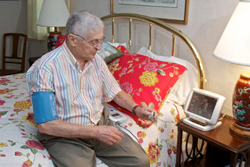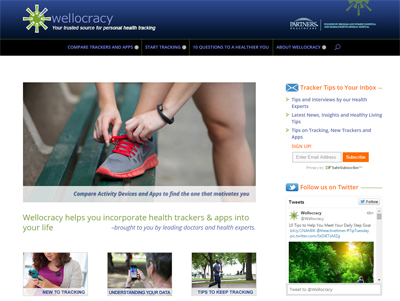Criteria for Stage 3 of meaningful use of EHRs were released recently and there is lots of controversy, as would have been predicted. One set of recommendations that is raising eyebrows is around patient engagement.
Criteria for Stage 3 of meaningful use of EHRs were released recently and there is lots of controversy, as would have been predicted. One set of recommendations that is raising eyebrows is around patient engagement.
The recommendations include three measures of engagement, and providers would have to report on all three of them, but successfully meet thresholds on two.
- Following on the Stage 2 measure of getting patients to view, download, and transmit their personal health data, the Office of the National Coordinator (ONC) has proposed an increase from five to 25 percent.
- The second measure requires that more than 35 percent of all patients seen by the provider or discharged from the hospital receive a secure message using the electronic health record’s (EHR) electronic messaging function or in response to a secure message sent by the patient (or the patient’s authorized representative).
- The third measure calls for more than 15 percent of patients to contribute patient-generated health data or data from a non-clinical setting, to the EHR.
This is all a mouthful, and it’s striking and a bit misguided from two perspectives. First, this requires health care providers to present material to or interact with patients electronically in the name of patient engagement. But it is really mostly about shoveling uninspiring material at our patients that is redolent of highly technical jargon with minimal context, with the belief that it is somehow good for patients to be engaged in this way. The intent is admirable, but the execution flawed. In addition, it is not surprising that many providers have had challenges meeting the Stage 2 requirement that five percent of patients download their medical records. It seems akin to saying that this week’s book club selection is the text for advanced graduate study of quantum mechanics — and then wondering why no one shows up for the meeting.
Some define engagement in terms of how many times consumers or patients interact with informational websites or portals. Both insurers and providers do this. Once again, there is puzzlement over why consumers would choose to spend more time on sites such as BuzzFeed, Facebook and Yahoo, rather than intently study their health benefits or review their lab tests.
At Partners HealthCare Connected Health, our first generation interest in engagement came when we saw, reproducibly, that people who interact with connected health programs have consistently better health outcomes.
This brings up two salient points: The first is how finely we can measure engagement using connected health. If it’s a glucose monitoring program, the system knows how often you measure your glucose, how often you upload your data, how often you interact with the website and how long you are there each time. If it’s one of our mobile apps, we know whether you respond to messages, open the app, which screens you visit, etc. Each time we’ve studied it, we have shown that the more people engage, the better their health outcomes. This is a pretty good argument for the power of engagement.
The second point is how we can segment people according to their level of engagement and then offer them different solutions. Not everyone likes a stern coaching voice. Some people respond to a monetary incentive, some a competition, etc. If you are not engaging with what we offer you, we can sense it and should offer you something else.
Which leads me to some recent, exciting news. I’ve written before about our site Wellocracy, which is designed to educate consumers about the value of self tracking.
Based on our research related to engagement noted above, we know that if we can hook you on self tracking, your health will improve. Wellocracy was our entry to helping consumers understand and embrace self tracking, and it has been successful. We even have a quiz that helps identify personality types and then offers consumers advice on matching trackers and apps to their individual goals and motivational characteristics.
But what if we could get to know you more and more each time you came to the Wellocracy website. Our vision is that when you come back you’ll feel like you’re visiting with an old friend that can anticipate your wishes, mood and preferences.
This is what we proposed to our friends at the Robert Wood Johnson Foundation and I’m pleased to say they saw eye to eye with us, funding our vision to build an “engagement engine” to support the sustained use of health and activity trackers to help improve health outcomes. This engagement engine will leverage machine learning and other big data analytic tools to convert insights from users into targeted feedback. We’ll develop and test an algorithm, and then test it in a clinical study.
Of course, there are models out there for this. Netflix recommends TV shows and movies for you. Amazon recommends books. Google populates the side panels of your browser with ads it feels are relevant to your interests based on your search habits.
Our engagement engine will work something like that, but it will have to be much more sophisticated. If Google presents an ad I don’t like, I can ignore it. Likewise, when Netflix recommends the Kardashians because that’s what my daughter watches on my account, I can laugh it off. But if we’re going to get to know you well enough to recommend health behaviors or health-related strategies, we can’t get it wrong. If we’re off one time, that could be offensive and you’d never come back.
We’re optimistic that we can employ the latest techniques in “deep learning” to learn enough about you so that we’ll be able to message you in such a personal, relevant way you’ll feel excited to engage with us.
And we know that improved health outcomes correlate with engagement.
How does this all benefit Partners HealthCare? We are a provider organization that is taking on more and more insurance risk. The way we will win in today’s performance-based reimbursement environment is to more efficiently deploy our human resources over larger and larger populations of patients while maintaining the highest levels of patient care. That can’t be accomplished by one-on-one, face-to-face interactions. We have to employ technology to create effective, meaningful, one-to-many relationships. That is our mission at Partners Connected Health.
As an industry, we have to do better than measuring successful engagement based on whether a patient downloads a copy of their medical record. Our engagement engine represents a fundamental building block to get us there.









